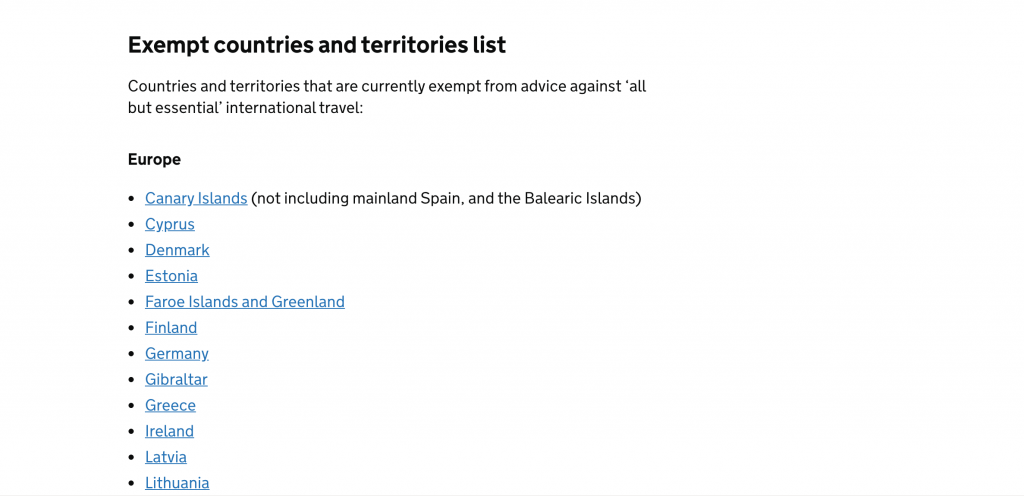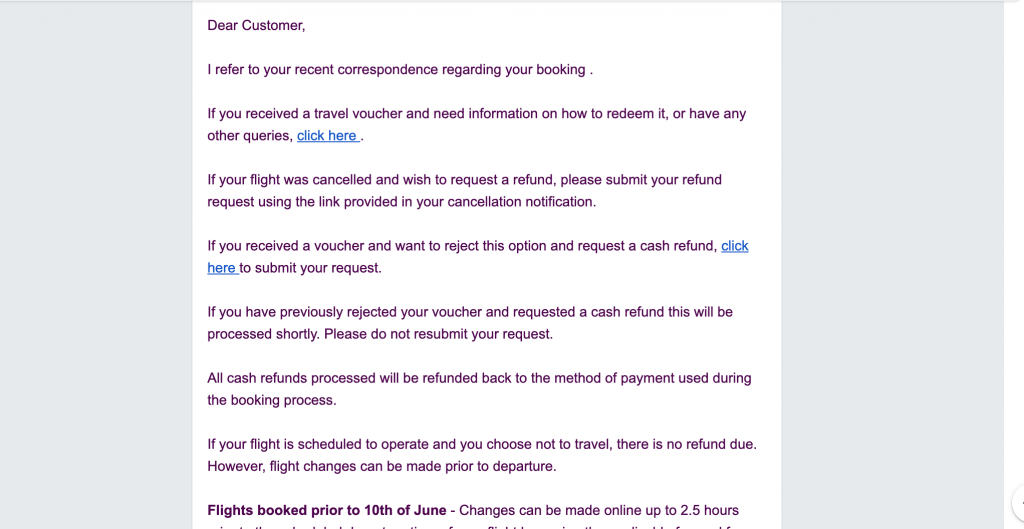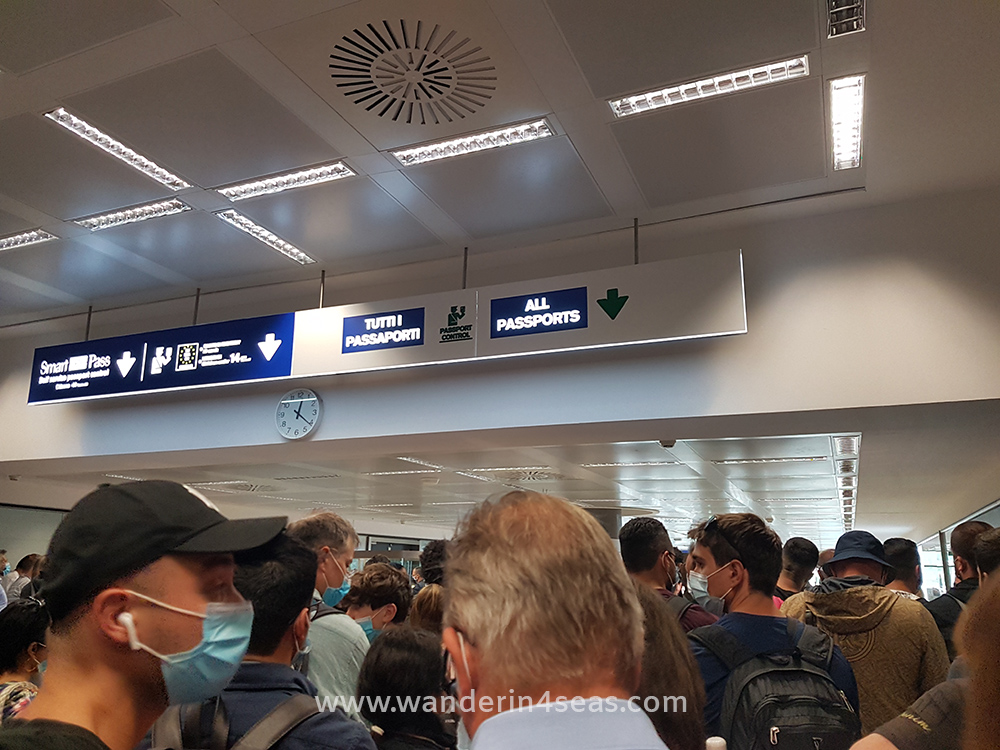How to plan for air travel during COVID19

Covid19 has caused major disruptions to my backpacking life in 2020, like everyone else. All of the ambitions long-haul holidays got cancelled, but I still managed to go through the ‘minefield’ of COVID travel and managed some get-aways in Europe. It was a complicated task navigating all the 2020 specific issues. Therefore I got some first-hand experience which might help you plan your next get-away during this special time.
Before booking your flight
Check the government’s travel advice
Government publishes its travel advice regularly. If your government advises against non-essential travels to your destination, it usually voids your travel insurance. It means you can go at your own risk but if anything happens there is no coverage for medical, liability etc, which can be a huge pain for countries like the USA.
In the UK, FCO (Foreign Travel Advice) updates its ‘safe country’ quite regularly, so keep an eye on the list till the day you go. If your destination becomes unsafe last minute, your travel insurance usually will cover the cancellation cost.

Check your destination country’s own entry requirement
Each country has its own entry requirement for foreign arrivals. Some allow foreign arrivals based on their passport, some based on where they come from. Check very carefully if your passport and the country you live in are on the list. I found out only three days before my flight to Switzerland that non-EU citizens are not allowed into the country, regardless of where they live. So I had to find another flight very last minute… hopefully you don’t have to do this!
A good website to check for EU countries’ entry requirement is
Check your travel insurance coverage
Your travel insurance does not always cover you for COVID related cancellation. Some will only cover you if you are travelling against FCO’s travel advice, but not an entry ban on destination. If you are due to renew your insurance, read the policy carefully. I was surprised to know even with my premium travel policy, I am still not covered if my destination country doesn’t allow me in.
When booking your flight
Check airlines’ flexible booking policy
Many airlines now offer flexible booking policies that allow you to change the bookings. But be careful they might not be as flexible as you think. Always read the full Terms and conditions and check how long the free cancellation is valid for.
Stories from me: When I changed my Easyjet flight in June, it was free without any problem. Later when I found out I can’t fly to Switzerland at all, I was told the ticket had to be cancelled with a fee because Easyjet no longer offers free cancellation within 14 days. I found out only 1 day before my Ryanair flight that their free cancellation policy is limited to 7 days in advance(as in Oct 2020) and you can only change once… Not as flexible as I wished!
Choose an airline with reliable customer service
For the last few months, I had to contact a number of airlines to cancel, change or ask for a refund. The whole experience made it very clear that budget airlines are not all the same and booking with a good one can make all the difference. Here are my stories:
Easyjet
For my flight to Geneva, I had to change the date and later cancel completely because of Switzerland’s entry requirement. The waiting time for customer service was long, running from 30min to 2 hours. They initially said no but after some explanation, they eventually agreed to issue a voucher. The waiting time was long but overall the customer service still works for me.
Ryanair
I really hope I don’t have to travel with this company ever again. In 2020 my experience with them is extremely bad, especially the complete lack of customer service.
Ryanair’s online chatbot waiting time ranges from 2 hours – never, and normally the chatbot just sends out standard replies. The telephone customer service’s waiting time is no less than 2 hours. When I finally get connected, they hung up on me after 2 minutes of connection, before I even finished my sentence. I filed complaints 2 months ago and never received any reply, not even a ‘No’. My trip to Germany in March was cancelled and I am still waiting for a refund… I think in the future I will spend a bit more money to avoid getting these kinds of headache.

Wizzair
Overall quite a good customer service as a budget airline. The waiting time was 2 minutes when I had to contact them to change a mistype on the booking. When all the flights got cancelled in April, they were the first ones to issue a refund.
Pegasus
Not sure how good their customer service is, since it is simply difficult to be contacted at all. I booked with them for Armenian in April. When the flight was cancelled, it was very difficult to find the customer service number on their website. They seem to push you to send questions via email which I never got a reply from. When my husband finally got them on the phone, they said the refund would be only issued when they resumed flight service. We finally got the refund in October 2020.
What to bring on board
Bring medical masks, visor and hand gels
All airports I’ve been to now require mask-wearing all the time, sometimes a medical mask, like in Milan Malpensa airport. I prefer using a visor for crowded areas and onboard because the 2 meters rule(1 meter in some countries) is not always observed.
While in the airports there might be social distancing, all the flights I took in July were completely full and there was no space or any separation between seats. It will be very difficult to fall ill with COVID symptoms in a foreign country so I’d rather take extra care.

Things to know when filing a complaint
My experience of contacting various airlines, insurance companies and banks this year has taught me followings:
Always ask and write down the name of the staff you speak to
If you ever need to refer to the conversation later, the date, time and name of the staff is always required.
Always ask for a written record of the incidents
No insurance company or ombudsman authority will even consider your case if you don’t have written record of what happened. Press the service desk of the airline or the airport to issue you something in writing if anything goes wrong.
Take evidence of your communication
To file any complaints you will need to prove the content and date of previous communication. Take screenshots of the conversation with the dates if you are contacting them via any live chat service like Chatbot or Facebook. If your communication is via post, date the letter and scan it before sending.
Use Email or post to file a complaint, avoid the online contact form.
To go through the Ombudsman’s service for dispute, you need to prove that you have tried to resolve with your service provider previously. As many online contact forms do not automatically give you a copy of the communication, try to use Email/ post so you can keep a record.
While air travel might sound so complicated now, the good news is once you arrive at your destination, it is much quieter than usual. We still feel lucky to manage some small holidays even with all these troubles. The moment I saw deep forests and snow peaks, it was all worth it!